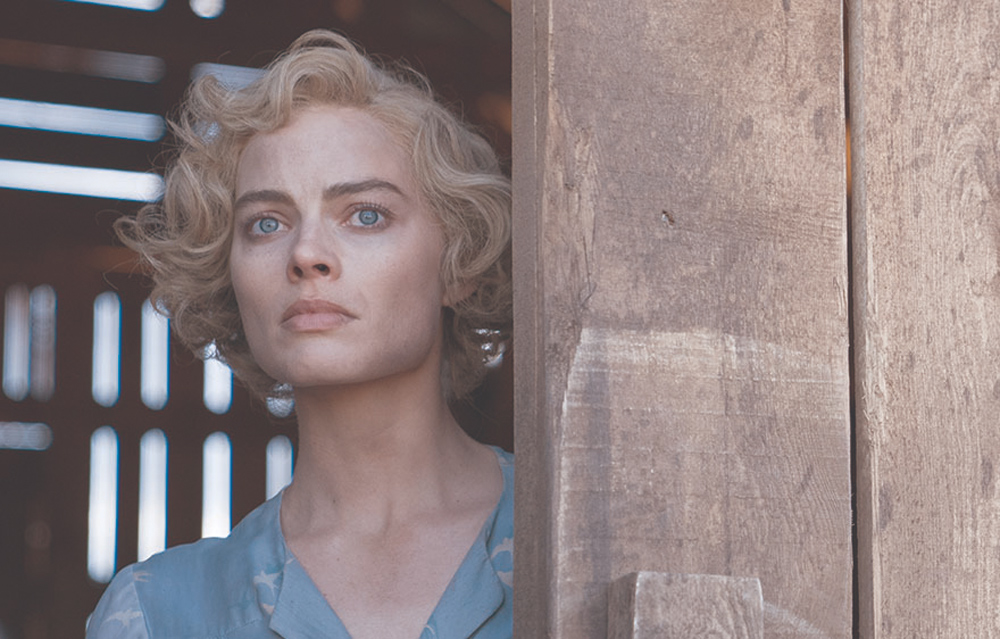“This ain’t a world for kids,” Allison (Margot Robbie) can be heard saying off-screen in “Dreamland,” after having lured Eugene (Finn Cole), a good decade younger than her, into a bathroom with her. “It’s ugly.”
Eugene wouldn’t be there if he didn’t see beauty in it – in this case, standing right in front of him – but in keeping Allison off to the side as writer/director Miles Joris-Peyrafitte slowly pans up him from the side as if to suggest this is the moment he could become a full-grown man, you have to see what he does and based on all prior evidence the film provides, you’re unsure whether it’s an illusion or not. The two are on the run after a string of bank robberies Allison is said to have committed, making her in the words of a local sheriff, “a little lady with half of Texas law enforcement trying to find her” and as Eugene’s prepubescent half-sister Phoebe describes from her vantage point as the film’s narrator, she arrives into Eugene’s life like a “bat out of Hell.” In fact, he finds her hiding out in a shed on his family’s humble farm, but you can understand when Allison is played with considerable flair by Robbie, surely not as likely to get lost as a needle in this particular hay and “Dreamland” comes roaring out the gate, condensing the history of the Dust Bowl in mere minutes and the storm it ignited by its aftermath as banks foreclosed on farms already devastated by tornados.
Joris-Peyrafitte dazzles with imagery of all the circumstances, both personal and historic, that lead Allison and Eugene to hit the road, removing any sense of feeling trapped in its period setting (as its characters) do by indulging in bold colors and even more vivid visual flourishes, presenting bank robberies with a bird’s eye view and flooding the screen with scenes from the characters’ past spliced with where they’d like to actually see themselves, just straddling the point of information overload. At first, “Dreamland” seems to be getting ahead of itself with its torrid pace, but in ultimately settling into the coming-of-age story of Eugene after being thrust into an extraordinary situation, it feels all too appropriate to understanding his experience where he can’t wait to grow up, but the loss of innocence has its considerable costs and the filmmaker’s inventive way in proves as revelatory as it is exciting.
Throughout “Dreamland,” Joris-Peyrafitte shows an extraordinary gift for letting situations become an expression for the way its characters are feeling, showing the exhilaration of sneaking into the police department by juxtaposing it with a scene of the slap-happy body percussionist playing the dance hall the rest of his small Texas town is at or the tentativeness Eugene feels toward entering adulthood in that aforementioned long, lingering shot in a motel room bathroom that makes its mark on you as much as him. While “Dreamland” is constantly traversing different planes of memory and experience, becoming confusing to those onscreen who worry when they can no longer tell the difference, it is a film of great emotional clarity with just enough reality to hold onto while letting the imagination run wild.
“Dreamland” will screen at the Tribeca Film Festival on May 2nd at 9 pm at the Village East Cinemas and May 4th at 9:30 pm at the SVA Theater.




